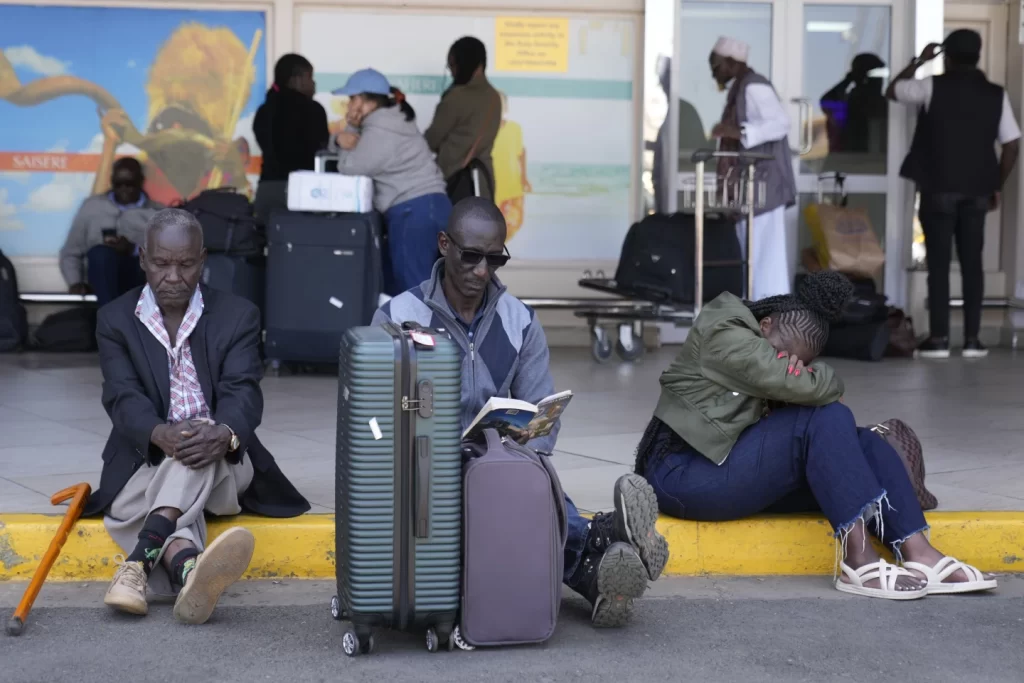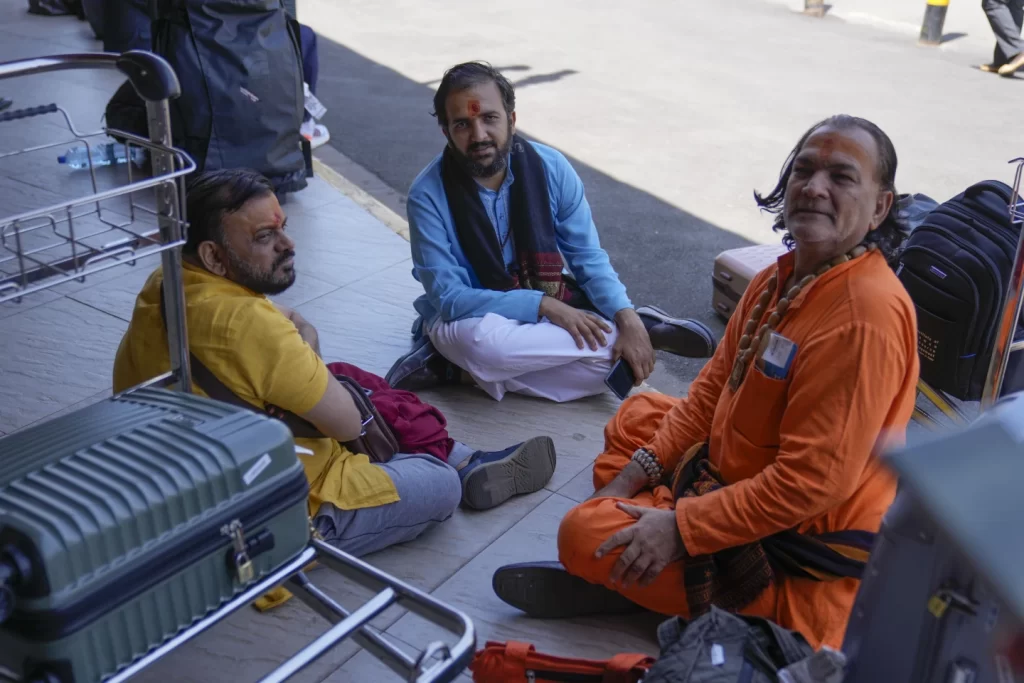Kenya’s airport workers’ union on Wednesday called off a strike that had grounded flights at Jomo Kenyatta International Airport, the country’s main air hub, following day-long negotiations with the government.

The strike, which began early Wednesday, was in protest of a build-and-operate agreement between the Kenyan government and India’s Adani Group. The deal would see the Indian conglomerate modernize the airport, construct an additional runway and terminal, in exchange for operating the facility for 30 years.
Moss Ndiema, secretary general of the Kenya Airport Workers Union, announced the end of the strike to journalists and workers, stating, “We have not accepted Adani.” He added that a return-to-work agreement had been signed, ensuring the union’s involvement in all future discussions regarding the airport’s management.
Transport Minister Davis Chirchir assured the public that the government would protect Kenyan citizens’ interests during the airport’s modernization process. “Our primary concern is upgrading our main airport while safeguarding local jobs and expertise,” Chirchir said in a press briefing.

The strike had caused significant disruptions, with hundreds of passengers stranded at the airport as flights remained grounded. Kenya Airways had announced potential delays and cancellations due to the industrial action, which also affected local flights from Mombasa and Kisumu.
During the strike, police officers had taken over security check-in roles, with long lines forming outside departure terminals. The Kenya Airports Authority had urged passengers to contact their airlines for updated flight information.
Francis Atwoli, secretary-general of the Central Organization of Trade Unions, criticized the government’s handling of the situation, stating, “This strike could have been averted if the government had listened to the workers’ concerns.” He emphasized that a simple written assurance protecting workers’ jobs would have prevented the industrial action.

The union’s primary concerns centered on potential job losses and “inferior terms and conditions of service” for remaining employees under the proposed Adani Group deal. Last week, reports of unknown individuals accompanying airport officials and taking notes had raised suspicions about the Indian firm’s preparations, further fueling union anxieties.
The controversy surrounding the airport deal has also entered the legal arena. On Monday, the High Court temporarily halted the implementation of the agreement until a case filed by the Law Society and the Kenya Human Rights Commission is heard.

As operations at Jomo Kenyatta International Airport return to normal, the incident highlights the ongoing tensions between modernization efforts and workers’ rights in Kenya’s critical infrastructure sectors. The government now faces the challenge of balancing its airport development plans with the concerns of its workforce and the broader public interest.
The resolution of this strike marks a temporary reprieve, but the underlying issues surrounding the Adani Group deal remain unresolved. As Kenya continues to pursue its ambitions of becoming a major aviation hub in East Africa, the government will need to navigate carefully between attracting foreign investment and maintaining strong labor relations in the aviation sector.
Credit:apnews.com



